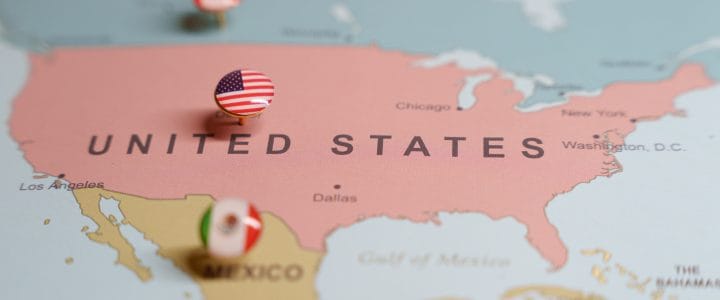Chancellor Rachel Reeves today delivered her Spring Statement, outlining the Labour Government’s economic priorities and reaffirming a commitment to fiscal discipline and long-term investment.
Billed as the start of a “decade of national renewal,” the Statement acknowledged global uncertainty but marked a clear shift towards stability and responsibility at home.
While less headline-grabbing than last year’s Autumn Budget, the absence of major announcements is telling.
“No further tax changes” may sound reassuring, but it also signals no new relief in sight for businesses and their owners.
Beneath the surface, the Statement includes several important developments worth noting:
“No further tax increases” – and no support for businesses!
Despite stating that “this Labour Government was elected to bring change to our country”, the Chancellor has declined this opportunity to alter tax policy.
When Reeves confirmed there would be “no further tax increases” beyond those introduced in the Autumn Budget, it was met with jeers in the Commons.
While a freeze on tax rises might sound like welcome news for individuals concerned about their personal liabilities, the reality for business owners is more disappointing.
In practice, no tax changes means no new support for businesses already feeling the pressure.
There are no fresh reliefs, no easing of existing burdens, and no incentives to spur investment, innovation, or growth.
Businesses that had hoped for reform to Corporation Tax, cuts to National Insurance, or enhanced allowances for capital expenditure and R&D will find no comfort in this Statement.
At a time when many enterprises are still recovering from rising employment costs, interest rates, and ongoing uncertainty, the absence of tax-based support could dampen confidence.
Stability is welcome – but stagnation is not. For businesses looking for signals of a pro-growth agenda, this silence may speak volumes.
The UK’s economic outlook in “a changing world”
The Chancellor repeatedly referred to “a changing world” in her speech, citing the war in Ukraine as a driving factor (though avoiding comment on President Trump’s tariff-heavy policy).
Due to economic uncertainty, the Labour Party’s priority will be on stability, national investment and defence spending (more on this below).
Despite this, Reeves announced that the OBR has upgraded its GDP growth forecasts for each year from 2026 to 2029, with the economy now expected to be larger by the end of the forecast period than previously predicted in the Autumn Budget.
The specific figures she outlined include GDP growth of:
- 1.9 per cent in 2026
- 1.8 per cent in 2027
- 1.7 per cent in 2028
- 1.8 per cent in 2029
The hope for many businesses upon hearing this news must be that of optimism.
Economic development could support stronger investment, hiring and growth before the end of the decade.
Therefore, regardless of Reeves’ consistent referrals to economic uncertainty, GDP is expected to outperform previous Budget predictions – a positive takeaway for all.
Labour’s tax evasion crackdown
The Chancellor announced a further crackdown on tax evasion, aiming to increase prosecutions of tax fraud by 20 per cent and take total revenue raised from reducing tax evasion to £7.5 billion.
She emphasised fairness, stating that it is wrong for some to avoid taxes while working people pay their share.
For businesses, stronger enforcement helps level the playing field, ensuring competitors are not gaining an unfair advantage by dodging their obligations.
For individuals, it reinforces trust in the tax system and ensures public services are funded without raising taxes.
The extra revenue could also reduce pressure for future tax increases, supporting broader economic stability.
Changes to MTD for ITSA: Quietly announced, massively important
One of the most significant updates in the wider Spring Statement document (but, interestingly, not included in Reeves’ speech), was the confirmation of the phased rollout of Making Tax Digital for Income Tax Self-Assessment (ITSA).
From April 2026, the scheme will apply to sole traders and landlords earning over £50,000 and for those earning over £30,000 in 2027. Now, this is expanding to those with income above £20,000 by 2028.
This gradual lowering of the threshold means around 900,000 sole traders will be brought into the MTD regime by 2028.
As part of this scheme, HMRC will be cracking down on late payments of both VAT and Self-Assessments.
Previously taxpayers would incur a penalty of two per cent of the tax owed if the outstanding tax was not paid within 15 days and four per cent if the tax was not repaid within 30 days.
Now, taxpayers within the MTD scheme will face a 3 per cent charge on any outstanding tax if it remains unpaid after 15 days, with a further 3 per cent added if the amount is still overdue at 30 days.
In addition, the annualised interest rate applied to late payments will more than double – rising from the current 4 per cent to 10 per cent.
Those who are yet to react to MTD for ITSA due to the small scale of their business operation will now need to act quickly to avoid being caught outside of the scheme in the years to come.
Reeves reminds us of changes made last year
One of the key aspects to note was the reminder of previous tax changes made by the Government in the Autumn Budget.
Whilst Reeves noted the fact that these changes provided a foundation of a stronger economy, it’s worth remembering exactly where this “strength” comes from.
- An increase in the lower and higher rates of Capital Gains Tax to 18 per cent and 24 per cent respectively.
- An increased Employers National Insurance rate to 15 per cent from 13.8 per cent and a reduction of the threshold from £9,100 to £5,000.
- Abolishing the UK’s non-domicile regime and introducing policies to tax non-doms on their worldwide income.
- An increase in Stamp Duty Land Tax from three per cent to five per cent and a reduction in thresholds for first-time buyers.
- The introduction of VAT charges to private school fees.
- Changes to Business Asset Disposal Relief (BADR) that will take effect in the coming years. The current 10 per cent rate will remain until 6 April 2025, after which it will increase to 14 per cent, and then to 18 per cent from 6 April 2026.
Reeves made no attempt to roll back the previous changes – confirming that these increases are still going ahead.
Her Statement should serve as a timely reminder for business owners and individuals to revisit their tax planning strategies.
Just because today’s announcements lacked major surprises does not mean it is time to be complacent.
Minor issues – still noteworthy!
Whilst seemingly unrelated to the broader impact on businesses that this Spring Statement holds, there were minor points raised in Reeves’ announcement that deserve your attention.
For example:
- Individual households £500 better off: Reeves told the Commons that the OBR now expects real household disposable income to grow at nearly twice the rate forecast last autumn, with households set to be £500 better off on average under this Government. This could lead to increased consumer spending and boost demand for goods and services – which is good for businesses.
- Labour sticks to housebuilding promise: The Chancellor stated that Labour policies would “lead to housebuilding reaching a 40-year high” which is good news for a construction sector already crumbling under pressure.
- Taking aim at defence spending: Reeves confirmed a £2.2 billion boost in defence spending, with at least 10 per cent of the equipment budget going towards advanced technologies like drones and AI. The investment will support manufacturing hubs in areas such as Glasgow, Derby, Newport, and Barrow, creating thousands of skilled jobs and new business opportunities.
- Chancellor insists that inflation targets are achievable: Reeves said inflation, which peaked at 11 per cent under the previous Government, is on track to reach the 2 per cent target by 2027. This should offer greater price stability, helping businesses plan, invest, and manage costs with more confidence.
- Unexpected freeze to benefit claimants: Reeves confirmed a £4.8 billion cut to welfare, including a 50 per cent reduction and freeze of the Universal Credit health element for new claimants – an unexpected move not signalled last week.
- ISA reform on the horizon: Though not mentioned in the Chancellor’s speech, the larger document released at the same time hints at potential reforms to Individual Savings Accounts (ISAs) to “get the balance right between cash and equities to earn better returns for savers, boost the culture of retail investment, and support the growth mission.” This could mean a decrease in the tax-free allowance currently offered by these savings vehicles.
While not the headline announcements, these points could still have meaningful implications for both individuals and businesses.
One might see these as hints at broader economic shifts – and opportunities – that are worth keeping an eye on.
The real impact of the Spring Statement
While this Spring Statement may have lacked headline-grabbing reforms, its message was clear: stability first, change later.
For individuals, there are small signs of progress – rising household incomes, a firmer grip on inflation, and continued investment in defence and infrastructure.
For businesses, however, the Statement brings more caution than comfort.
There is no rollback of last year’s tax rises, no fresh reliefs, and no new incentives to drive growth or innovation.
Yet amidst the silence, there are signals – economic forecasts are improving, consumer spending may rise, and targeted investment could support job creation and local economies.
If the Autumn Budget was about making bold moves, the Spring Statement is about holding the line.
Now is the time for business owners and individuals to assess their position and review their tax planning strategies with their accountant.
To read the full Spring Statement released by the Government, please click here.

















